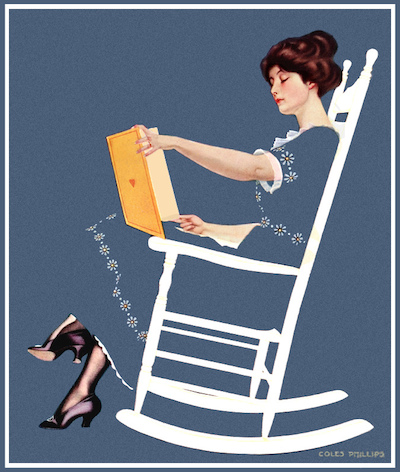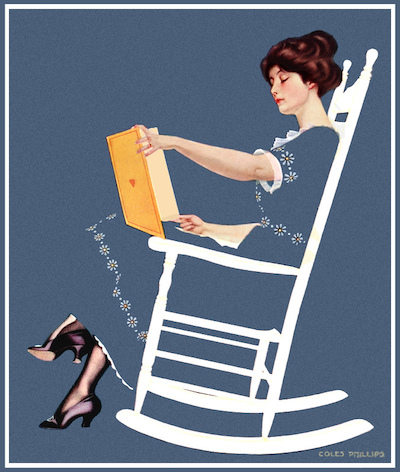 One of my favorite parts of writing Dear Sports Fan is reading other great writers cover sports in a way that’s accessible and compelling for the whole spectrum from super-fans to lay people. Here are selections from some of the articles this week that inspired me. We start with an extremely interesting article by Shira Springer about women’s professional sports, why they struggle to gain an audience and what can be done about it. From there, we move on to just one of the many articles about retiring Yankees captain Derek Jeter, this one by Peter Abraham, and then some much needed sentimental and incisive commentary about why sports are worth following from Kevin van Valkenburg. We close out the weekly roundup with two articles about ESPN’s suspension of writer and media mogul Bill Simmons by Will Leitch and Amy Davidson.
One of my favorite parts of writing Dear Sports Fan is reading other great writers cover sports in a way that’s accessible and compelling for the whole spectrum from super-fans to lay people. Here are selections from some of the articles this week that inspired me. We start with an extremely interesting article by Shira Springer about women’s professional sports, why they struggle to gain an audience and what can be done about it. From there, we move on to just one of the many articles about retiring Yankees captain Derek Jeter, this one by Peter Abraham, and then some much needed sentimental and incisive commentary about why sports are worth following from Kevin van Valkenburg. We close out the weekly roundup with two articles about ESPN’s suspension of writer and media mogul Bill Simmons by Will Leitch and Amy Davidson.
Why do Fans Ignore Women’s Pro Sports?
By Shira Springer in The Boston Globe
Although it’s been 42 years since Title IX required that federally funded schools provide girls and women with equal opportunities to compete in sports, 17 years since the WNBA played its first season, 16 years since women’s ice hockey debuted at the Winter Olympics and the United States won gold and spurred young girls’ interest in the sport, and 15 years since the US women’s national soccer team drew 90,185 fans to the Rose Bowl in Pasadena for a women’s World Cup final, widespread interest in women’s professional team sports remains frustratingly elusive. The problems that plague teams in Boston often stymie female leagues nationwide: small operating budgets; lack of exposure; ill-fitting venues; competition from live local men’s games and an ever-increasing variety of nationally televised sports contests; fans stuck on the fact that female athletes aren’t as fast, strong, or physical as their male counterparts.
Marketing expert David Schmittlein, dean of the MIT Sloan School of Management, suggests light beer as a case study. “When light beer was invented, it was terrible,” he says. “If anything, it was for girls, because real beer drinkers didn’t drink light beer. Ironically enough, that changed with football players like John Madden characterizing it not as light but as less filling. . . . The challenge for light beer was to create a distinctive value for the product. That is to some degree the challenge for women’s sports.
“What makes it a different and, in some respects, a better kind of experience than the men? How is it better? I don’t think women’s sports leagues are very diligent about asking that or knowing the answer to that.”
What it was like to cover Derek Jeter
By Peter Abraham for the Boston Globe
Every clubhouse has players who are comfortable with the media, some who tolerate it and others who dislike the process. Accountability is important regardless. When the same players are constantly left to explain losses or answer for the mistakes made by others, resentment can quickly fester.
Jeter never let that happen. If the Yankees lost, he was there to take the heat. And not once did he slip up by criticizing a teammate or jabbing the opposition. In a city full of writers waiting to pounce, he never uttered something he regretted. That’s a streak better than Joe DiMaggio’s.
A few thoughts on the Ryder Cup, Roger Angell and my favorite sports gif ever
By Kevin Van Valkenburg
Some people love the World Cup, the NBA Playoffs, the World Series or the Olympics. Every sports fan has their “something” that connects with them on level that is a blends of nostalgia and excitement. For me, it’s the Ryder Cup. It’s my favorite “thing” in all of sports. I love the teamwork and cooperation it requires. I love that it turns typically-stoic and robotic athletes in to fist-pumping, awkward high-fiving lunatics. I love how much of it is mental, not physical, and that the athletes are playing for nothing more than pride and love of country.
It’s the caring that matters. You don’t have to follow games. I won’t fault you if you aren’t interested anymore, if recent news has soured you on the athletes we follow and the leagues we obsess over. I wish we could care as much about elections or fixing our schools or solving issues that truly matter. But… I don’t ever want to stop following, because no matter how selfish and soulless sports can sometimes be, my god, some moments are still such a gift.
Why Bill Simmons Needs ESPN
by Will Leitch for Sports on Earth
There was once a wall between editorial and business at every publication in the country. Those days are gone. When you criticize a business interest of your controlling company, you do so knowing full well what you are doing.
The list of human beings Simmons could have called a liar without consequences is basically infinite. Gary Bettman, commissioner of the NHL (a league the network has no deal with): Go ahead! Character actor John C. Reilly? Fire away! Miss Cleo? Sure! Your Uncle Terry? Go get ’em, Bill! What mattered was not necessarily that Simmons had called Goodell a liar: What mattered was that Simmons knew this was a sore spot, a stress point, for the network. That’s why the dare happened. And that’s why ESPN had to act. All that Twitter noise this morning, and Carson Daly explaining it on the “Today” show while Syria burns? That’s all ephemeral — soft, unquantifiable media. None of that compares to a call from the NFL’s Park Avenue headquarters. (Ask PBS.) That’s cash.
What Bill Simmons Showed about ESPN
By Amy Davidson for The New Yorker
Simmons’s anger is absolutely earned. Goodell’s denial is absurd; as I’ve written before, what did he think it looked like when a football player knocked a woman unconscious? (Note that Simmons is saying that he lied about knowing what was on the tape, not whether Goodell saw it himself.) There are a few levels of dishonesty here: when Goodell hears that a player—a man whom he watches on the field every week using the force of his body in violent collisions—has hit a woman, and says that he just can’t picture the mechanics of that action without a video, how many lies is he telling, to others and to himself? Perhaps in other cases, when players choked women, shot them, or dragged them by the hair, he needed a sort of animated diagram.
The only way for that not to destroy journalism as an enterprise is for reporters to have, at those moments, true institutional support. ESPN has done the opposite, doing the work of the angry, powerful people whom it covers for them.

